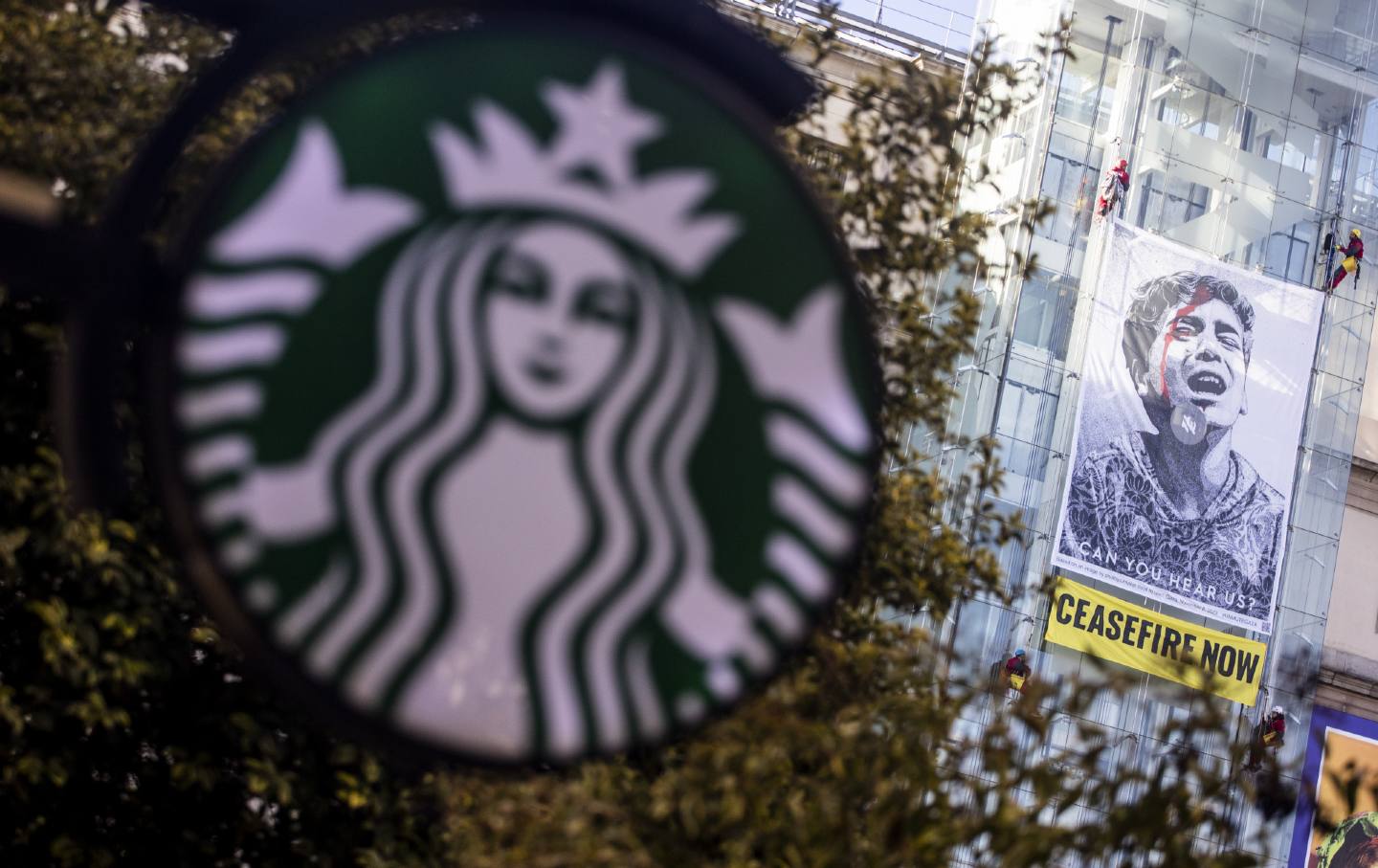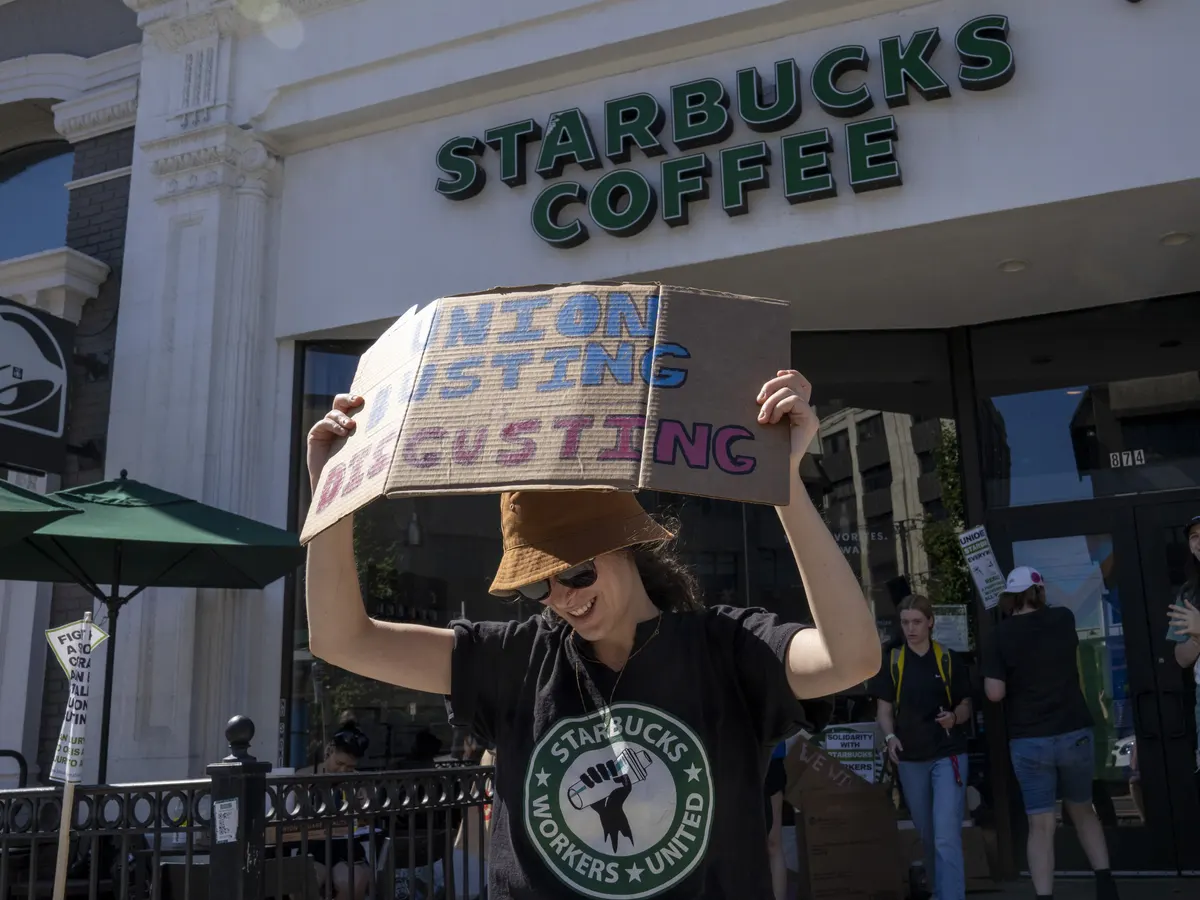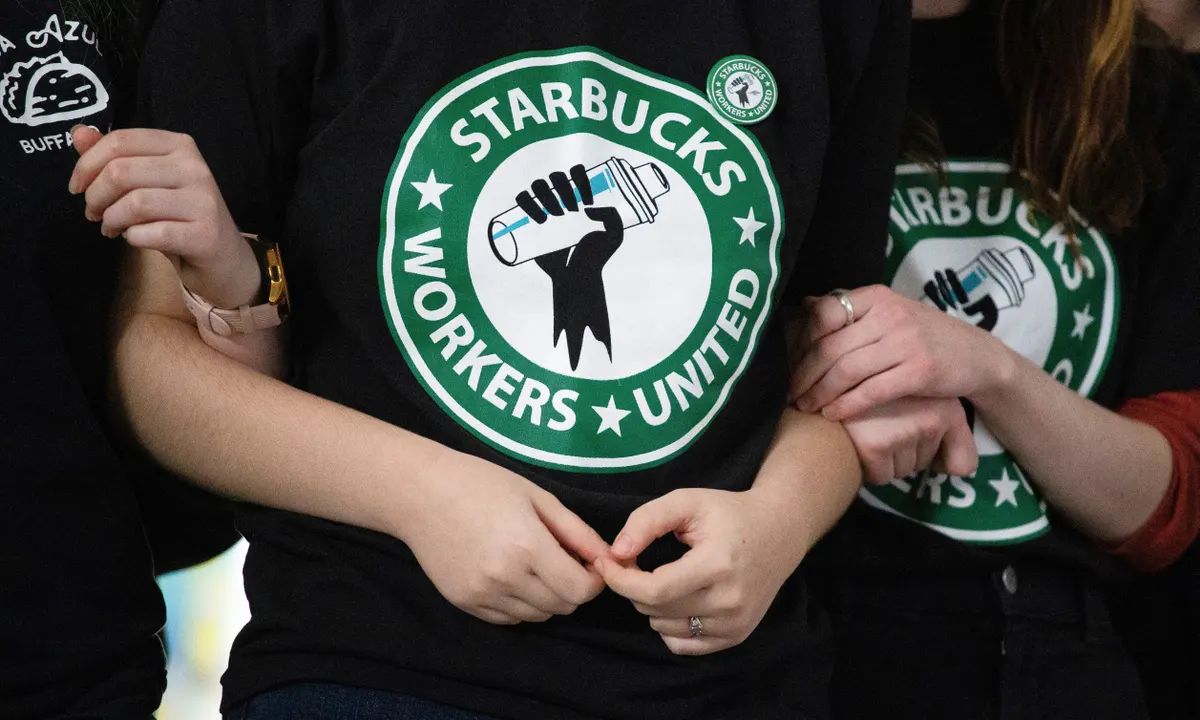In a landscape where the tug-of-war between corporate giants and union forces seems endless, Starbucks has recently emerged as a surprising figure of potential reconciliation and progress. For years, Starbucks has been at the forefront of corporate resistance against unionization efforts. Yet, in a striking turn of events, the coffee chain and its union have sparked a conversation that could change the course of labor movements in the United States.
This development not only offers a glimmer of hope to Starbucks workers but also to employees at Amazon, Trader Joe’s, and REI, signaling a possible domino effect in the realm of labor negotiations.
Starbucks: A Groundbreaking Announcement
Late February brought with it an announcement that no one saw coming: Starbucks and its union declared a joint intent to carve “a constructive path forward” regarding organizing and collective bargaining. The significance of this cannot be overstated, given Starbucks’ previously unyielding stance against unionization.
Scheduled to resume in late April, these in-person bargaining sessions aim to establish a “foundational framework agreement,” a monumental step for more than 400 unionized Starbucks stores.

The Ripple Effect
Starbucks’ pivot from staunch union opposition to a willingness to negotiate marks a pivotal moment not just for its workers but for employees across various sectors striving for better labor conditions.
Claire Chang, a sales associate at the unionized REI store in Soho, Manhattan, encapsulates this sentiment perfectly, expressing renewed hope and determination among workers to persevere in their battles.
“It’s a huge breakthrough,” said Claire Chang, a sales associate at the REI store in Soho in Manhattan. “After two years of trying to win a contract, the company workers finally got this huge multibillion corporation to meet them at the bargaining table after the company was so adamant, it gives us some hope.”

Skepticism still lingers, however, with experts like John Logan, a professor of labor studies, questioning the sincerity and outcome of the cafe chain’s newfound approach.
The National Labor Relations Board (NLRB) has levied numerous complaints against Starbucks, highlighting a fraught history of labor relations. Yet, the potential for a successful contract negotiation could serve as a landmark victory for labor movements nationwide.
A Beacon for Other Companies
The dialogue between Starbucks and its union has implications far beyond their immediate negotiations. Michelle Eisen, a barista and spokesperson for the Starbucks union, emphasizes the importance of mutual respect and collaboration in forging a new path forward.
This sentiment is echoed by Richard Bensinger, an adviser to the Starbucks union, who views the company’s agreement to negotiate as a powerful message to workers everywhere that organizing can indeed lead to success.
‘Huge breakthrough’ in Starbucks union talks – which other US firms will follow? https://t.co/1k2yKWDMvE
— Guardian US (@GuardianUS) March 22, 2024
This development is particularly pertinent in the context of other major corporations, such as Amazon, where unionization efforts have faced significant hurdles. The contrast between Starbucks’ apparent readiness to negotiate and Amazon’s continued resistance underscores the diverse challenges and opportunities within the American labor landscape.
The Broader Impact
The Starbucks announcement has not only reinvigorated the spirits of union supporters but also sparked discussions on the sustainability of anti-union efforts among companies that wish to maintain a progressive image.
REI and Trader Joe’s, in particular, face a critical decision: continue their resistance at the expense of their brand and principles or embrace a more cooperative stance toward labor rights.

As the cafe brand embarks on this unprecedented journey of negotiation and potential reconciliation with its union, the eyes of the nation are watching. The outcome of these talks could herald a new era in corporate-labor relations, inspiring companies and workers alike to reevaluate their approaches to unionization and collective bargaining.
In a world where the balance of power between employers and employees is constantly evolving, Starbucks’ story may well become a pivotal chapter in the ongoing saga of America’s labor movement.










